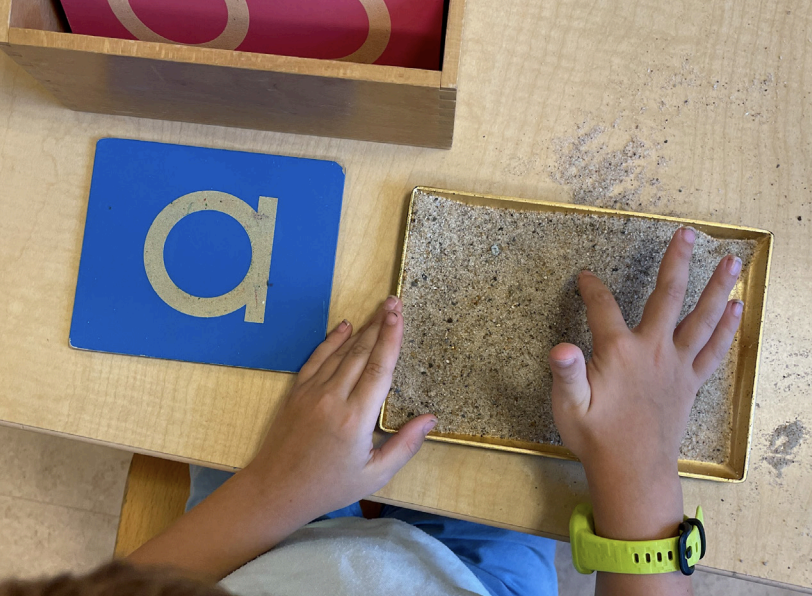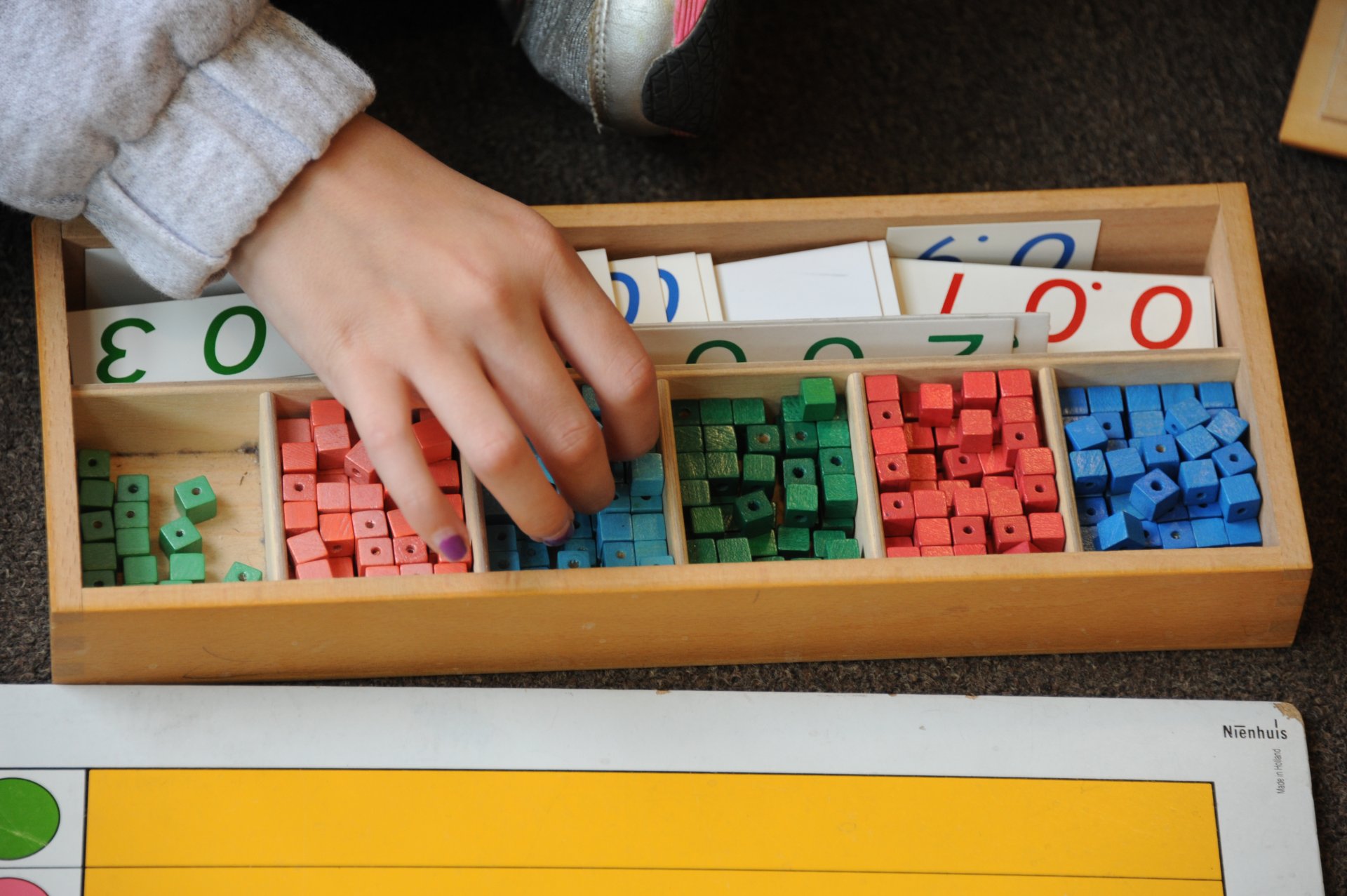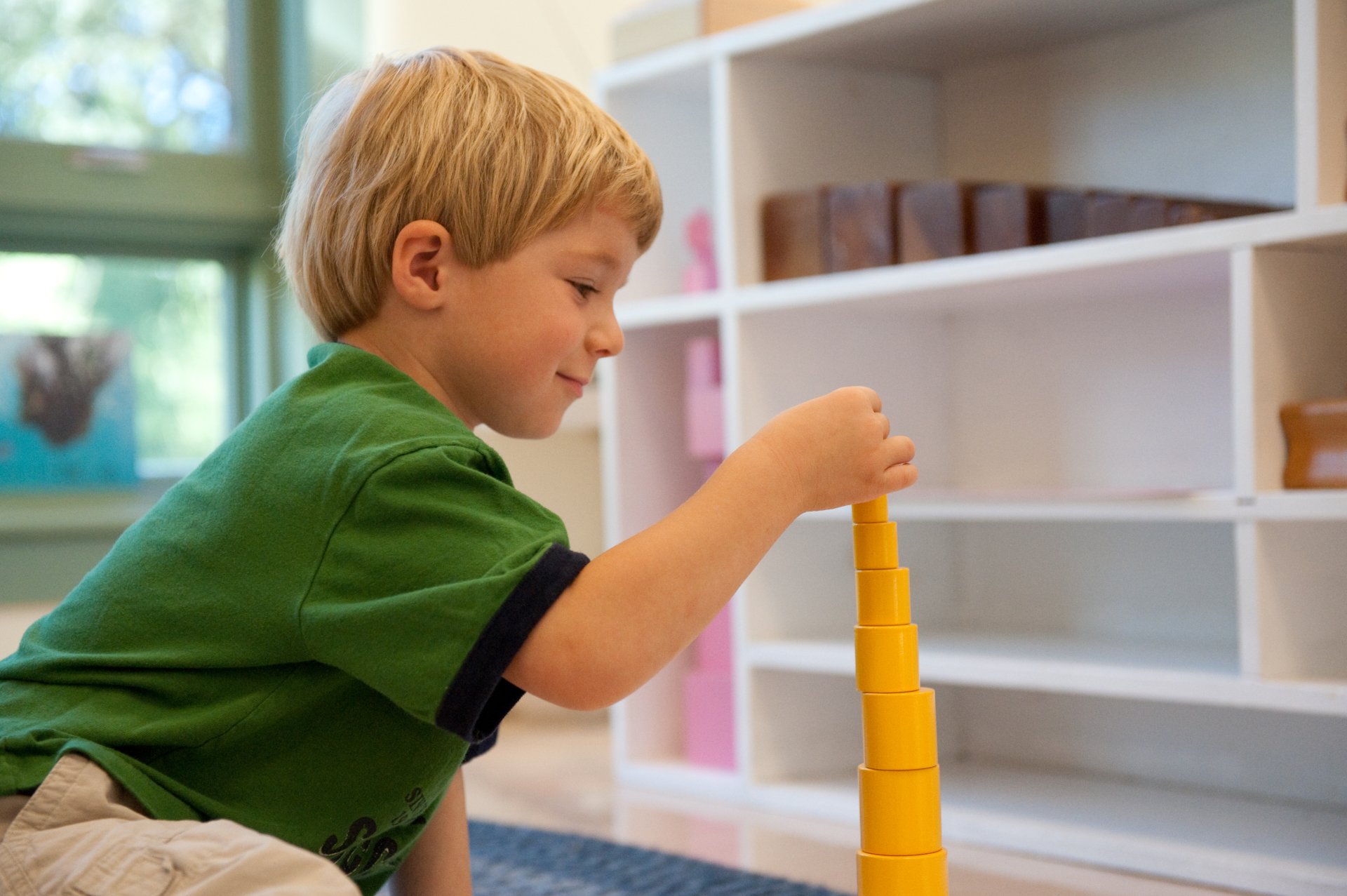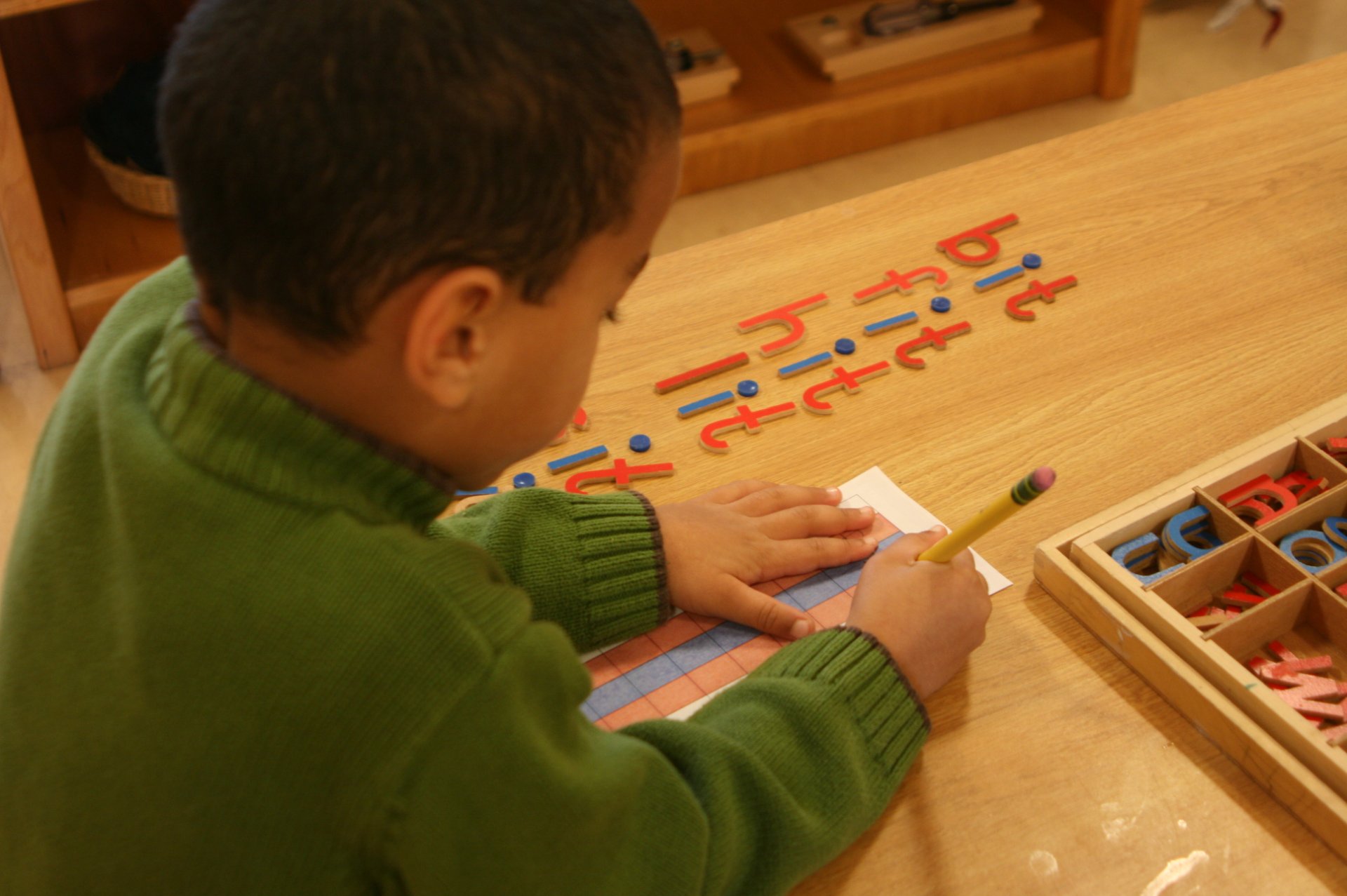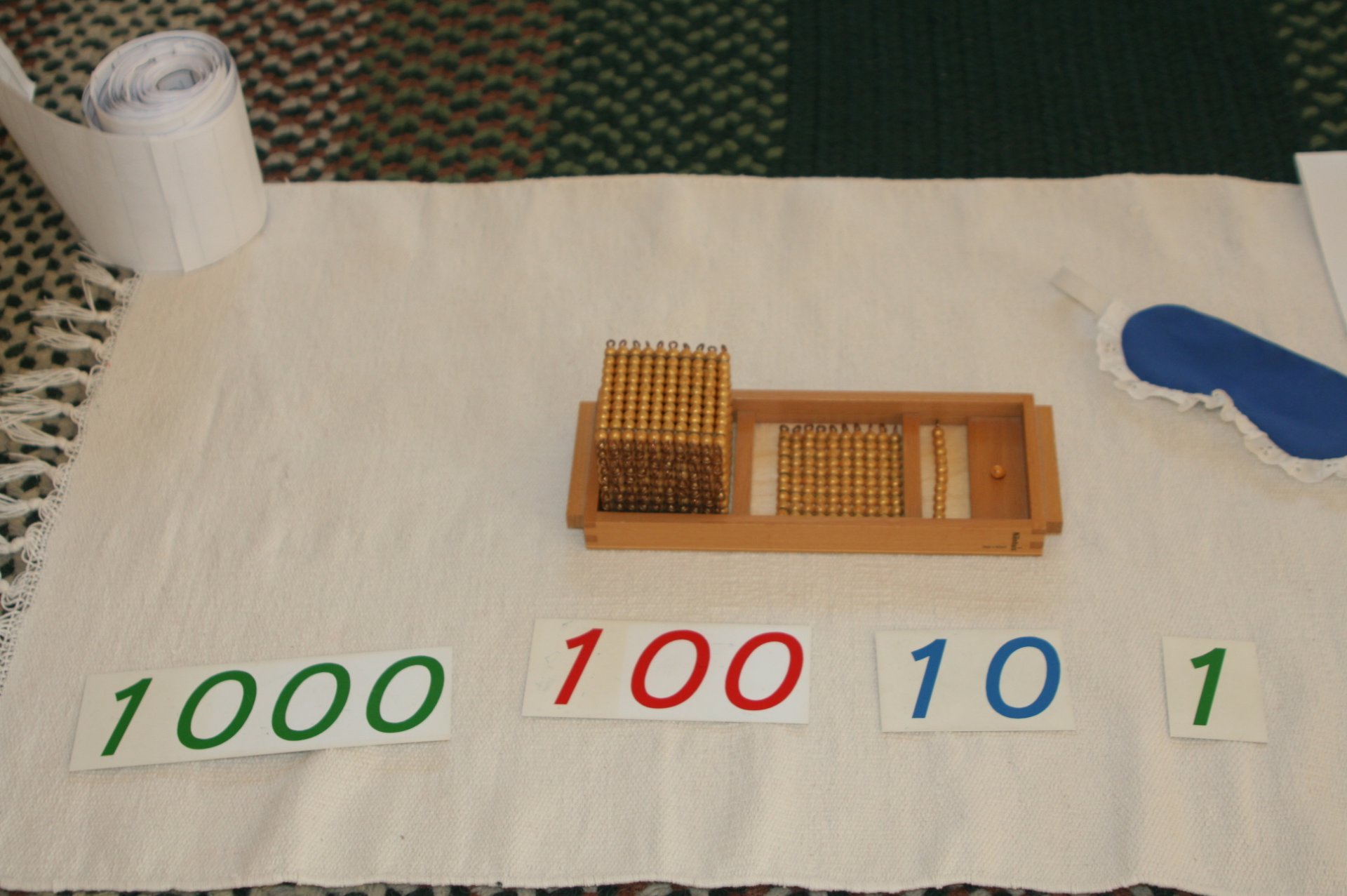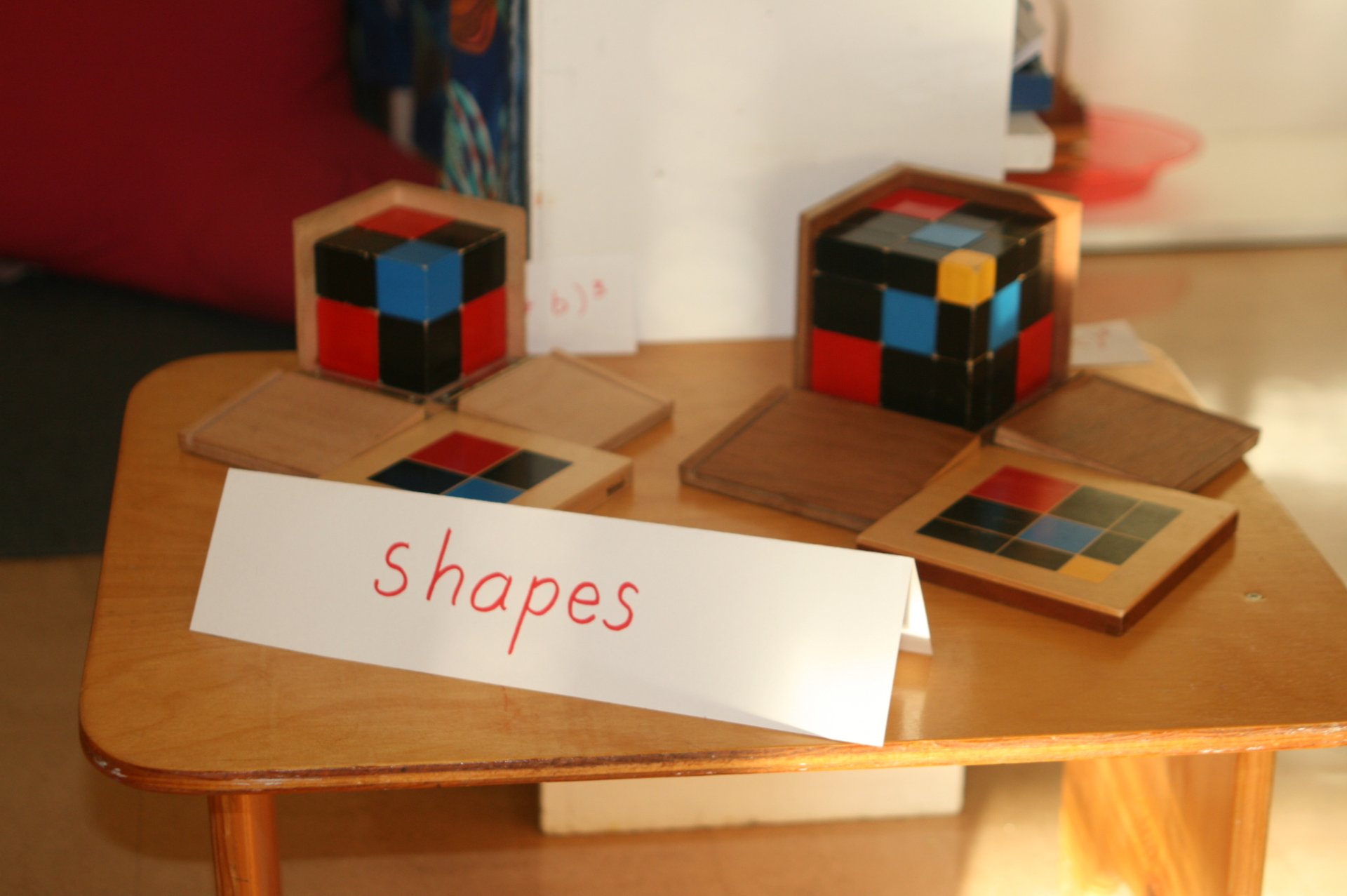Our Mission
Woodland Hill Montessori School – a diverse and engaging educational partnership of parents, teachers, children, and community – nurtures a child’s love of learning and sense of social and personal responsibility using the child-centered Montessori philosophy and curriculum to develop the intellectual, spiritual, physical, artistic, and academic excellence inherent in each child.
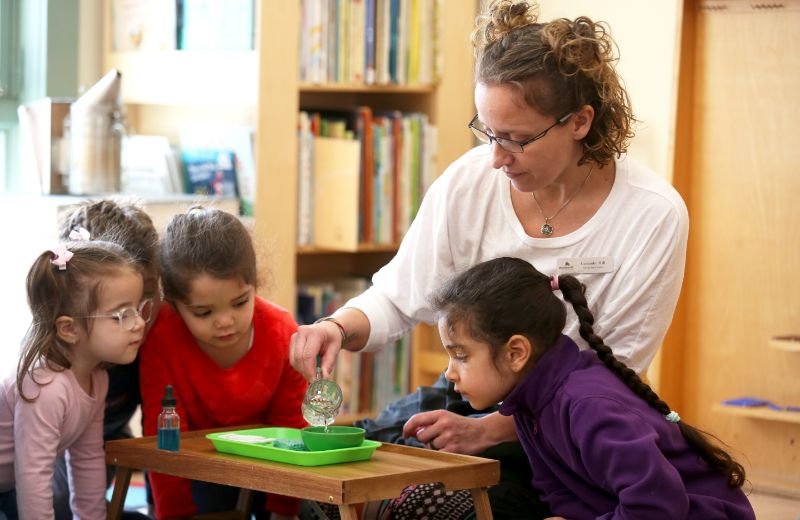
The Montessori Method
Our classrooms demonstrate a deep commitment to the Montessori Method and at each level our program is carefully constructed around the developmental stages of the child.
Even our youngest children, have enriched experiences in algebra, geometry, geography, astronomy, botany, zoology, economics, world cultures, history, physical education, fine arts and Spanish. The Montessori approach is internationally renowned for the development of each child’s creativity, individual resourcefulness and potential.
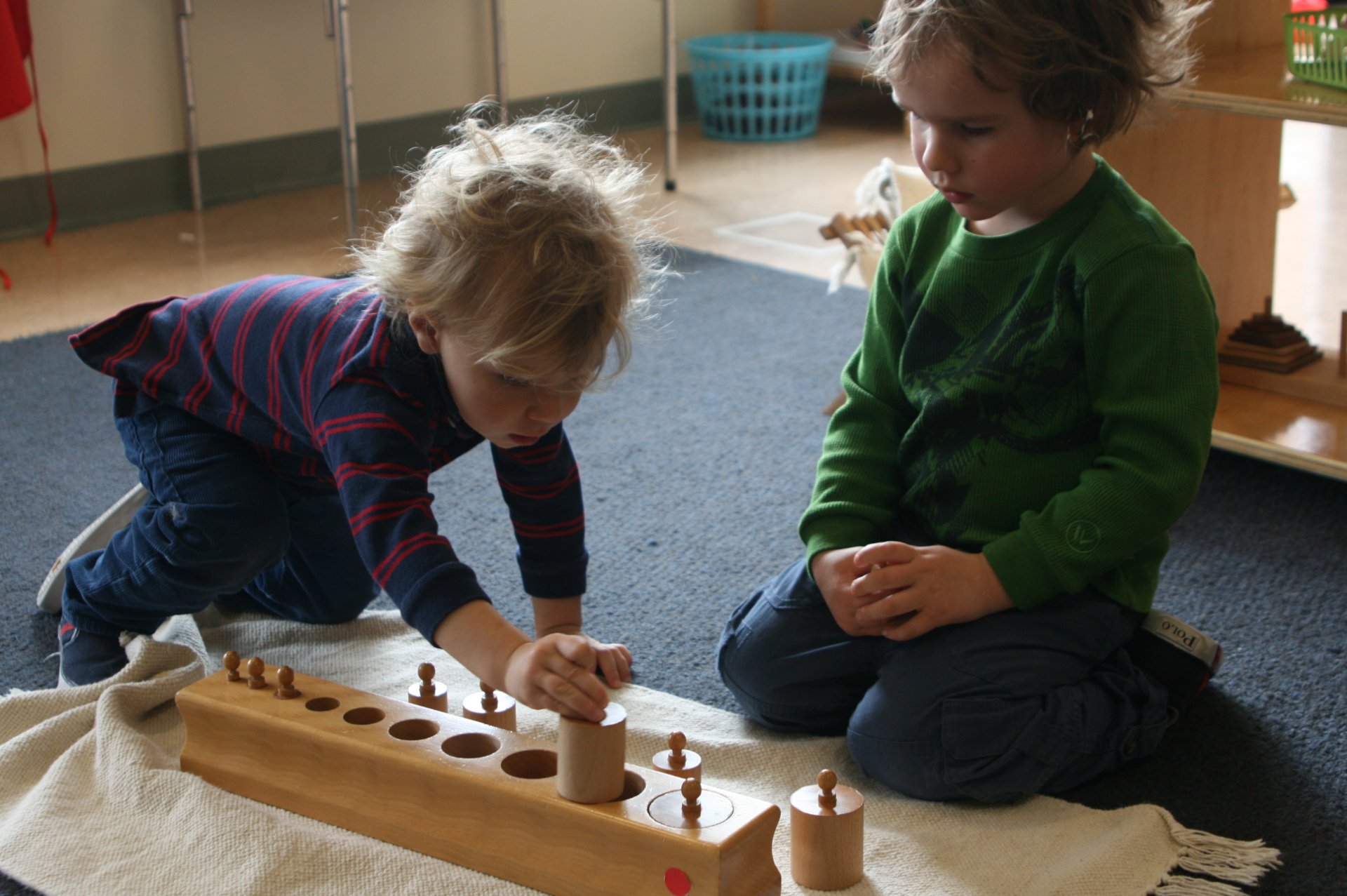
Multi-Age Classroom
Our classrooms are composed of three age level groupings to allow younger children to learn from older children and receive exposure to advanced concepts through observation. Older children reinforce their learning through teaching concepts they have already learned solidifying their mastery. Our classrooms reflect a diverse and interconnected society, it is common for individuals to interact with people of different ages and personalities. It reminds us that we are all part of a larger tapestry, and that our differences can complement and enhance our collective experiences.
Montessori Materials
Montessori education is known for its emphasis on hands-on learning and the use of carefully designed learning materials. These materials are not only visually appealing but also serve a specific purpose by teaching a single skill or concept. Each material is thoughtfully crafted to follow a logical and developmentally appropriate sequence, which helps children progress from concrete to abstract understanding.
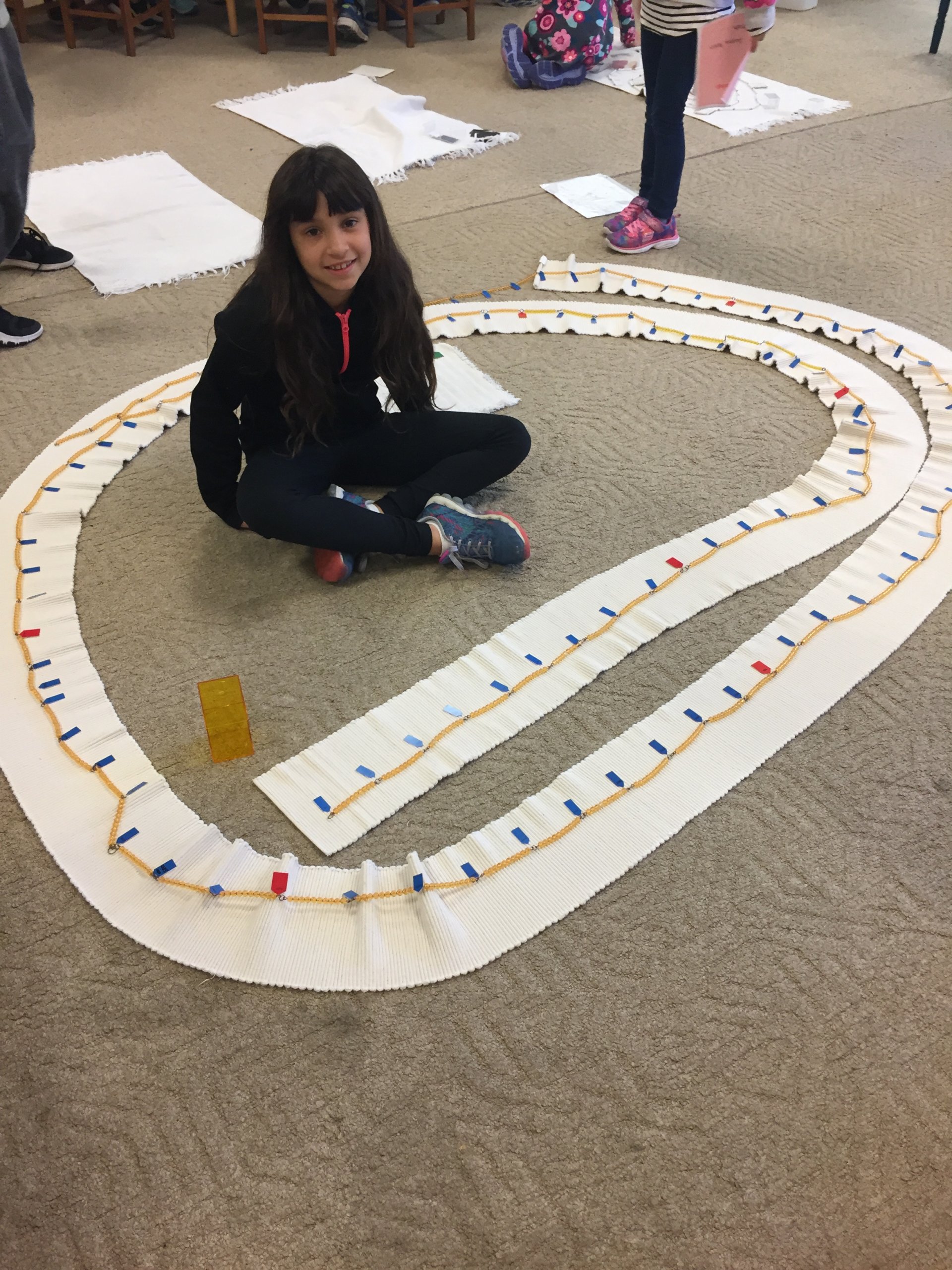
Uninterrupted Work Cycles
The work period in a Montessori classroom is a fundamental aspect of the learning process for students, providing them with the freedom to select tasks and responsibilities at their own pace, without any interruptions. During the work cycle, a child is empowered to choose an activity that interests them and engage with it for as long as they desire before cleaning up and returning it to its designated shelf. Simultaneously, teachers are present to support and monitor the students' work, offering individual and small-group lessons as necessary. This uninterrupted work time plays a crucial role in fostering the development of coordination, concentration, and independence in students, allowing them to engage in meaningful learning experiences.
The goals of our Montessori Curriculum are consistent throughout the four levels of our education programs:
To enter into a partnership with parents in the education of their children
To encourage the self-motivation and self-discipline that will lead to a lifelong pursuit of knowledge
To lead children to mastery of precisely identified intellectual, social, and physical skills
To help children develop a positive self-image as the key to the development of their full potential
To foster open minds, compassion, and respect for others
To balance self-reliance, independence, and responsible freedom with the skills of working cooperatively
To instill in each child a sense of duty and personal responsibility for the world in which we live
To spark imagination, wonder, humor, and joy in our children


